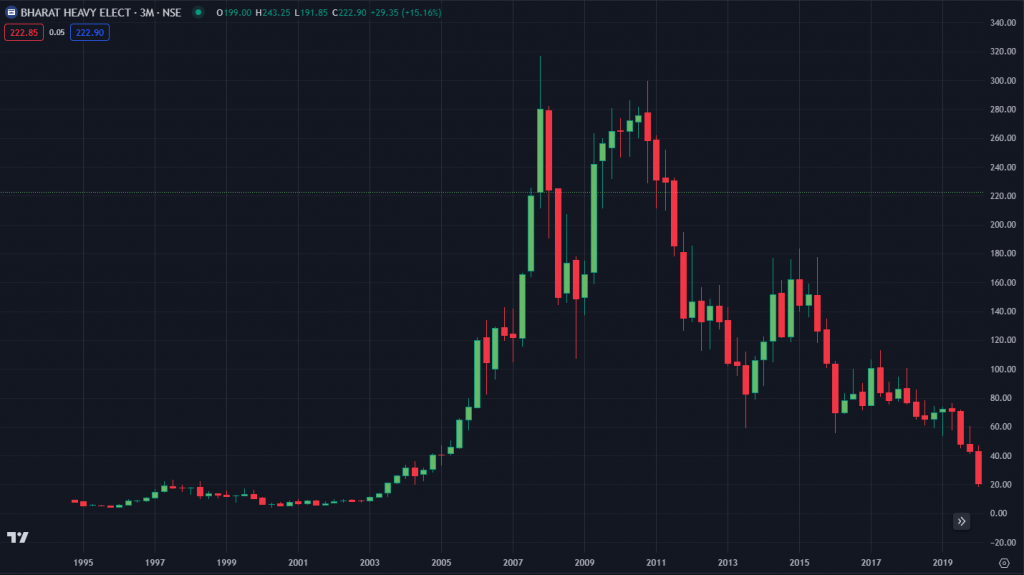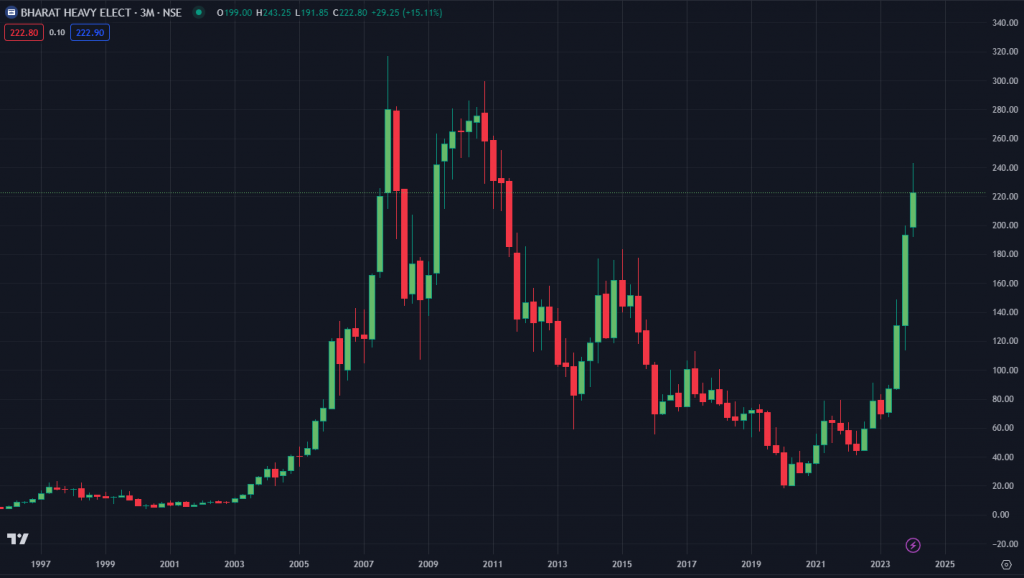The Emotional Rollercoaster: Why Exit Plan Matters
Imagine buying a stock that skyrockets tenfold over several years, only to see it plummet and erase most of those gains. This scenario, unfortunately, plays out for many investors who lack a clear exit strategy. This article explores the importance of having an exit plan in place, using the example of Bharat Heavy Electricals Limited (BHEL).
The BHEL Story: A Case of Missed Opportunities
The example focuses on BHEL, a stock that surged from ₹30 to ₹300 over five years. While investors were initially ecstatic, the price later dropped significantly, falling to ₹150 and then ₹100 within the next two years. This caused panic selling, followed by attempts to re-enter at perceived “good prices,” only to witness further downward spirals.

The Emotional Trap and the Cycle of Losses
The emotional rollercoaster depicted in the BHEL story is a common trap. Investors, initially blinded by the initial surge, hold onto the stock for fear of missing out on further gains. However, when the inevitable correction arrives, panic sets in, leading to selling at a loss. This is often followed by attempts to “catch the falling knife” by re-entering at seemingly attractive prices, ultimately resulting in further losses.
The Importance of an Exit Strategy:
Having a well-defined exit strategy helps navigate these emotional pitfalls. This strategy could involve factors like price targets, specific profit levels, or technical indicators signaling a potential reversal. By setting clear exit points in advance, investors can avoid making impulsive decisions based on fear or greed.
Alternative Approaches and Avoiding the Rollercoaster:
The BHEL example highlights the potential cost of not having an exit plan. While the stock eventually recovered to ₹240, many investors who held on throughout the volatility likely missed out on opportunities to invest elsewhere.

Having a defined investment strategy, including both entry and exit points, can help investors avoid emotional decisions and potentially capture gains in other areas of the market.
Remember, a well-defined exit plan can help you navigate volatility, protect your capital, and open doors to new opportunities within the market.

Kindly write to us on support@weekendinvesting.com if you have any queries









